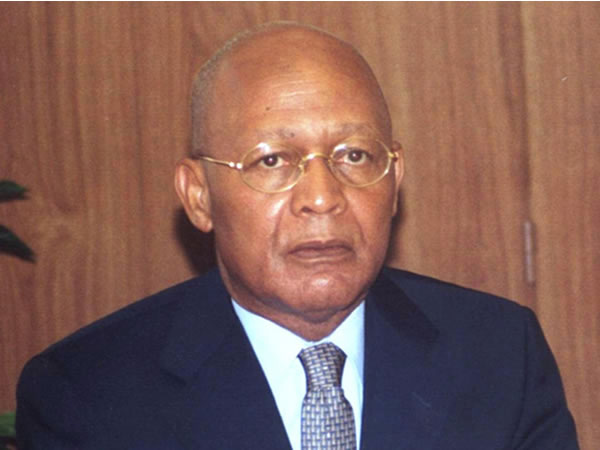National Oil Companies (NOCs) in sub-Saharan Africa including Cameroon
are selling oil in shadowy deals to Swiss companies, a new report by
Natural Resource Governance Institute (NRGI) has found.
YAOUNDE - JULY 25, 2014
© Valentine MULANGO | Cameroon-Info.Net

The oil boss in Cameroon was named by President Paul Biya who should surely be aware of these secret oil sales
Photo: © Archives
Photo: © Archives
The report entitled “Big Spenders: Swiss Traders, African Oil and the
Risks of Opacity,” states the sale of crude oil by governments and their
NOCs is one of the least scrutinized aspects of oil sector governance
and that from 2011 to 2013, the governments of these countries sold over
2.3 billion barrels of oil.
The report is the first detailed examination of those sales, and focuses on the top ten oil exporting countries in sub-Saharan Africa including Nigeria, Ghana, Cameroon, Chad, Republic of Congo and Angola. Of the 1,500 individual sales the report identified, Switzerland-based companies purchased a quarter of the volumes sold by African NOCs, buying over 500 million barrels worth around $55 billion.
“A handful of companies are buying public oil that’s worth 10, 15 or 20 percent of government revenue and only a very small circle of insiders know about the transactions,” said Alexandra Gillies, head of governance programs at NRGI and one of the authors of the report.
Deals in Cameroon
In Cameroon, the report released this July 2014 notes that Swiss traders are leading customers of the National Hydrocarbons Company, the state oil company (SNH). While market data suggests that the Spanish oil company Cepsa is the top single buyer of SNH oil, Swiss traders Glencore, Gunvor and Vitol together bought around half of the crude sold by SNH in 2013.
The report is the first detailed examination of those sales, and focuses on the top ten oil exporting countries in sub-Saharan Africa including Nigeria, Ghana, Cameroon, Chad, Republic of Congo and Angola. Of the 1,500 individual sales the report identified, Switzerland-based companies purchased a quarter of the volumes sold by African NOCs, buying over 500 million barrels worth around $55 billion.
“A handful of companies are buying public oil that’s worth 10, 15 or 20 percent of government revenue and only a very small circle of insiders know about the transactions,” said Alexandra Gillies, head of governance programs at NRGI and one of the authors of the report.
Deals in Cameroon
In Cameroon, the report released this July 2014 notes that Swiss traders are leading customers of the National Hydrocarbons Company, the state oil company (SNH). While market data suggests that the Spanish oil company Cepsa is the top single buyer of SNH oil, Swiss traders Glencore, Gunvor and Vitol together bought around half of the crude sold by SNH in 2013.

Adolphe Moudiki has been Director-General of the state oil company of Cameroon (SNH) since 1993
Photo: © VKM
Photo: © VKM
“These sales resulted in payments by Swiss companies to the Cameroonian
state of around $600 million, equal to 12 percent of 2013 government
revenues. Glencore bought multiple cargos from SNH in 2011 and 2012 as
well,” the report stated.
The report said the Cameroon case helps illustrate how individual sales can matter much more to the government seller than to the trading company buyer, adding that identified national oil company sales data indicate that, in 2013, Glencore bought four cargos from SNH, resulting in payments of around $400 million.
These sales, the report by NRGI, the Berne Declaration and SWISSAID said they take place in environments where levels of corruption are high and institutions are weak, but where financing for development is urgently needed.
Meliorating accountability
Africa’s producers lack many of the checks and balances needed to safeguard the public interest: the 2013 Resource Governance Index ranks Nigeria, Angola, Cameroon, South Sudan and Equatorial Guinea in the bottom third of the 58 resource-rich countries assessed.
“The opportunity to buy state-owned oil should be allocated through processes that are transparent, openly competitive and governed by clear rules so as to secure the best possible price and protect against favoritism, patronage and bribery.
“Oil-producing governments and NOCs should adopt rules and practices that encourage integrity in the selection of buyers and determination of the selling price, including detailed public disclosures on how the state’s share of production is allocated and sold,” the report advised.
The report said the Cameroon case helps illustrate how individual sales can matter much more to the government seller than to the trading company buyer, adding that identified national oil company sales data indicate that, in 2013, Glencore bought four cargos from SNH, resulting in payments of around $400 million.
These sales, the report by NRGI, the Berne Declaration and SWISSAID said they take place in environments where levels of corruption are high and institutions are weak, but where financing for development is urgently needed.
Meliorating accountability
Africa’s producers lack many of the checks and balances needed to safeguard the public interest: the 2013 Resource Governance Index ranks Nigeria, Angola, Cameroon, South Sudan and Equatorial Guinea in the bottom third of the 58 resource-rich countries assessed.
“The opportunity to buy state-owned oil should be allocated through processes that are transparent, openly competitive and governed by clear rules so as to secure the best possible price and protect against favoritism, patronage and bribery.
“Oil-producing governments and NOCs should adopt rules and practices that encourage integrity in the selection of buyers and determination of the selling price, including detailed public disclosures on how the state’s share of production is allocated and sold,” the report advised.
